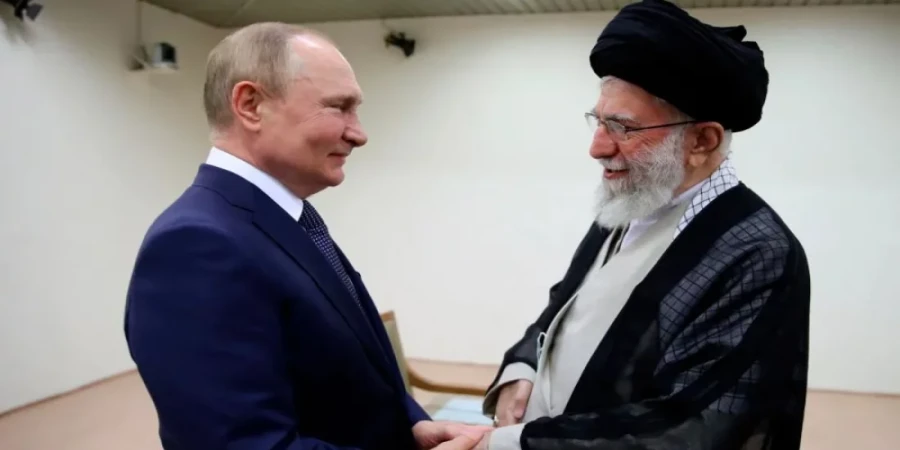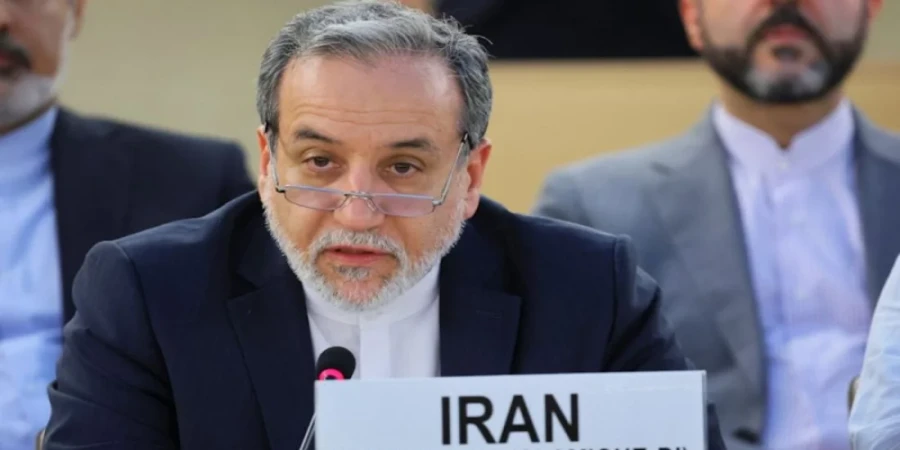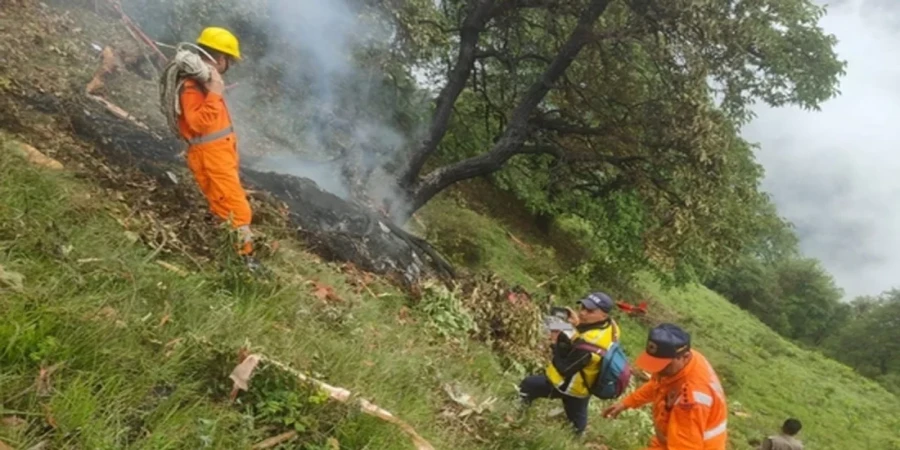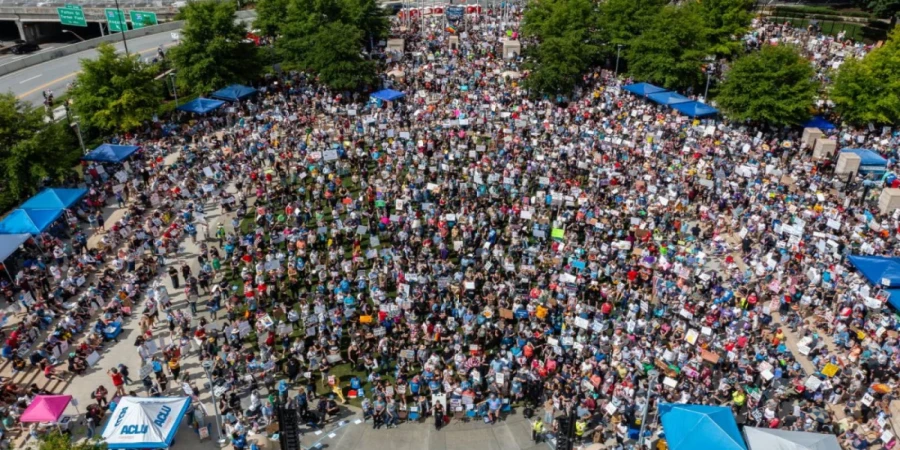
ছবি: Photo: Collected
Kremlin issues stark warning in a high-stakes interview, saying Khamenei’s assassination would spark regional chaos and global instability as tensions escalate over Israel-Iran conflict.
In a bold and chilling warning, Russia has declared that any attempt to harm Iran’s Supreme Leader, Ayatollah Ali Khamenei, would trigger an “extremely negative” reaction from Moscow, raising fears of an escalating global crisis. Kremlin spokesperson Dmitry Peskov delivered the stark message during an exclusive interview with Sky News at the Konstantin Palace in St. Petersburg, underscoring Russia’s growing alignment with Tehran in the face of mounting tensions in the Middle East.
Peskov warned that the assassination or death of Ayatollah Khamenei would unleash consequences far beyond regional boundaries. “It would open a Pandora’s box in the Middle East,” he stated gravely, suggesting that such a development could ignite widespread instability, possibly spiraling into a larger international conflict.
The Kremlin’s comments come amid escalating rhetoric and military activity surrounding Iran. U.S. President Donald Trump recently indicated that a decision would be made within two weeks regarding potential American involvement in a prospective Israeli military operation against Tehran. The deliberation has triggered anxiety in diplomatic circles, with global powers bracing for the potential fallout of further escalation.
Peskov did not mince words about the broader implications. “The situation is not just deeply concerning for the Middle East—it is extremely dangerous for the entire world. Any new actor entering this conflict would intensify the risks and create an even more volatile scenario,” he emphasized.
Russia, which has significantly deepened its strategic relationship with Iran since launching its invasion of Ukraine, sees Tehran as a vital ally in its bid to counterbalance Western influence. In January of this year, the two countries signed a major strategic partnership agreement, solidifying ties that now extend across military, economic, and geopolitical fronts.
This alignment places Moscow in a precarious position as tensions between Iran and Israel—longtime adversaries—threaten to erupt into open warfare. Should Ayatollah Khamenei, the symbolic and political cornerstone of the Iranian regime, be killed or incapacitated, Russia believes the reverberations would be immediate and catastrophic.
Though Peskov refrained from detailing what specific actions Russia might take in response, he hinted strongly at serious repercussions. “Any suggestion of regime change in Iran is unimaginable. It is not only unacceptable to speak about such things—it should be inconceivable to even entertain the idea,” he said, directing his remarks toward Western policymakers and media outlets.
He further suggested that if any harm were to befall Khamenei, the response would originate from within Iran, but with clear global implications. “There will be a reaction. It will come from the heart of Iran. Those proposing such actions must understand—they are playing with forces they do not comprehend.”
According to Peskov, such an event would not only destabilize Iran internally by fostering extremism but could also draw multiple nations into a wider, multi-front conflict. “There will be a rise in radicalism, a backlash that could engulf the region. Anyone contemplating these actions must be ready to face the consequences of unleashing chaos,” he warned.
This warning comes as Moscow watches with alarm the growing proximity between Washington and Tel Aviv in crafting strategies against Iran’s nuclear ambitions and regional influence. While U.S. officials remain non-committal about direct intervention, the possibility of a joint military operation with Israel remains very much alive.
For Russia, the stakes are increasingly existential. Its relationship with Iran, once cautious and calculated, has evolved into a mutual partnership borne of shared enemies and converging strategic goals. Both nations are subject to extensive Western sanctions, both are attempting to assert dominance in their respective regions, and both see the current moment as an opportunity to challenge the global order led by the United States and its allies.
This shared ambition may now find its ultimate test in the streets of Tehran or the skies above Tel Aviv. A violent power vacuum in Iran would, by Moscow’s estimation, not only imperil regional allies like Syria and Hezbollah, but also threaten Russia’s broader influence across the Middle East.
The Kremlin’s language, unusually direct and evocative, signals a growing readiness to confront what it perceives as Western adventurism. "You cannot expect to strike at the heart of a sovereign nation’s leadership and walk away unscathed. The world doesn’t work like that anymore," Peskov said.
Meanwhile, international analysts are closely monitoring Iran’s internal stability amid these swirling threats. Khamenei, now 86 years old, remains a towering figure in Iranian politics, commanding immense loyalty from key military and religious factions. Yet rumors of dissent and questions about succession have long loomed in the background, adding to the anxiety surrounding any scenario that would see his sudden removal from power.
Tehran has not directly addressed the assassination rumors, but state media has amplified messages warning against “external plots” and promoting national unity. Security across key installations in Iran has reportedly been tightened in recent days, though officials have denied any specific threats.
Israel has also maintained a policy of strategic ambiguity, refusing to comment on any plans to strike Iran directly. However, Israeli intelligence has frequently identified Khamenei’s inner circle as critical to Iran’s nuclear and military apparatus, making any attack on the Iranian leadership a flashpoint of potentially historic proportions.
As the situation intensifies, Russia’s posture suggests it is willing to go beyond rhetorical support for its ally. Whether that means diplomatic maneuvering, increased arms support, or even cyber defense coordination remains to be seen. But one thing is clear: the Kremlin wants the world to understand that Khamenei is not just Iran’s leader—he is a red line.
And if that line is crossed, Russia insists the world will be forced to reckon with the consequences.
repoter





